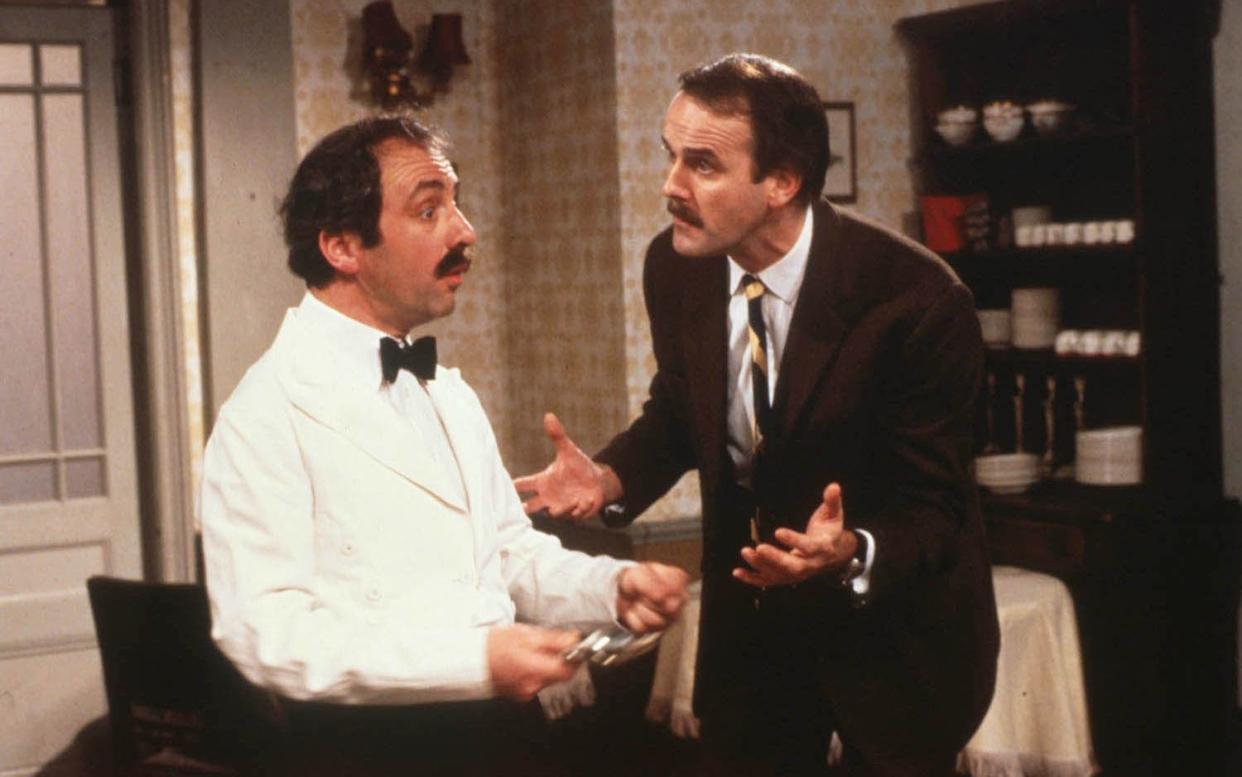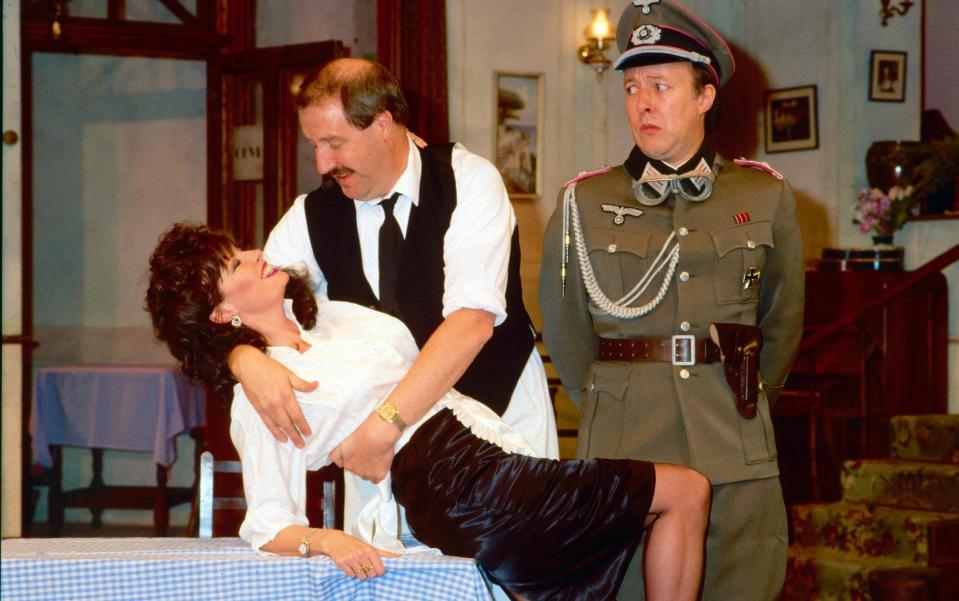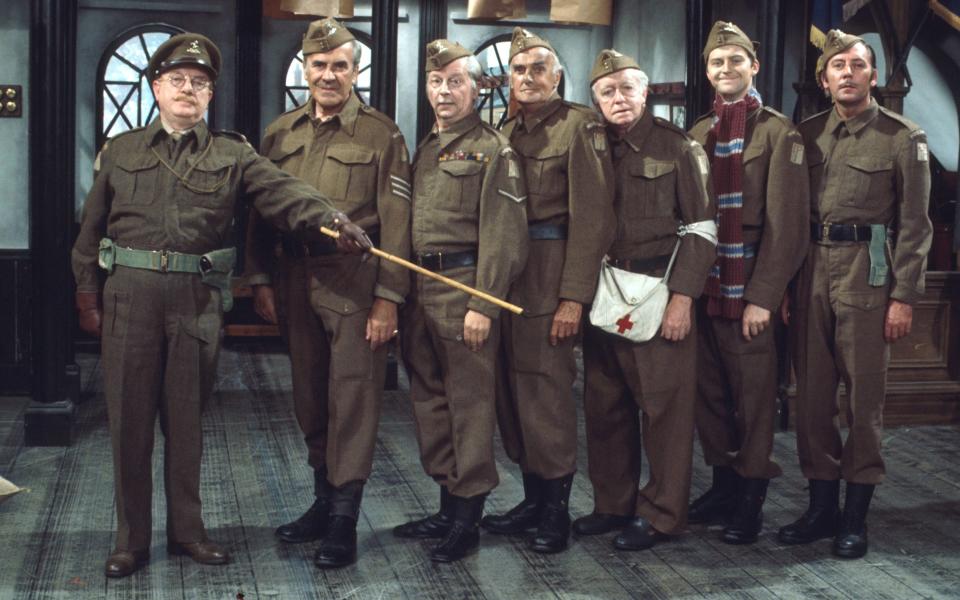The three classic British sitcoms that forecast Brexit

- Oops!Something went wrong.Please try again later.
- Oops!Something went wrong.Please try again later.
- Oops!Something went wrong.Please try again later.
- Oops!Something went wrong.Please try again later.
Classic BBC sitcoms Dad’s Army, Fawlty Towers and ‘Allo ‘Allo, from the 1960s, 1970s and 1980s, hold clues as to why Britain voted for Brexit, an academic has suggested.
Gavin Schaffer, a University of Birmingham historian, said the TV shows – particularly ‘Allo ‘Allo – amplified some of the thinking that lay behind the UK’s decision to quit the European Union seven years ago.
Prof Schaffer found clues in the comedies that reflected public ambivalence towards the EU and a desire to stand apart from “the Continent” decades before the vote in 2016.
He found this “lack of seriousness” freed creators and audiences to engage with things that would otherwise not be permissible for discussion.
‘Allo ‘Allo, created by David Croft and Jeremy Lloyd, focused on the life of Rene Artois, a French cafe owner in the town of Nouvion during the German occupation of France in the Second World War, who was played by Gorden Kaye.
The series deals with characters including a dishonest German officer, the local French Resistance and a pair of trapped British airmen, all while Artois conceals affairs with his waitresses from his wife.
Prof Schaffer said: “Many Britons took ‘Allo ‘Allo to their hearts as it presented a light-hearted reflection of European differences that ultimately spoke to the core differences between Britain and its European neighbours.
“The show also tells us something about how British attitudes to Europe were changing and not changing in the late 80s and early 90s as Britain edged closer to its European neighbours. Despite closer bonds, British voices of Euroscepticism never strayed too far from suspicions rooted in the Second World War.”

‘Allo ‘Allo could be read both as a deliberate attempt to put to bed the Germanophobia of the war years and work through European war trauma, while illustrating how different the British felt that Europeans were from themselves, said Prof Schaffer.
“The argument that there was something specifically British about being able to laugh at yourself was key to much of the public affection for ‘Allo ‘Allo. “This helps to explain British-European relations in this period, illustrating the extent to which British people considered their outlook, and principles, different and exceptional.
“What lurks in the shadows is a nation deeply ill at ease with its European neighbours and itself. Listening very carefully to ‘Allo ‘Allo reveals a story of a nation that remains unready for further European integration.”
Prof Schaffer makes his argument in a chapter, British Comedy and the Path to Brexit, in a new book called British Humour and the Second World War: Keep Smiling Through.
He added: “Britons in the series were foppish and stupid, the French were sexually promiscuous and cowardly (ditto the Italians but even more so) and the Germans ludicrous, camp, sexually deviant and occasionally fastidious and sinister.”
Turning to Fawlty Towers, broadcast between 1975 and 1979 and starring John Cleese as Torquay hotelier Basil Fawlty, Prof Schaffer said that its most famous episode, The Germans, used Britain’s relationship with Europe as the “elephant in the room”.
In the episode, broadcast only months after Britons had voted to remain in the European Economic Community in 1975, Fawlty is “liberated by his head injury to say things that he would otherwise have considered taboo”, said Prof Schaffer.
This led him famously to tell his staff repeatedly to make sure that they “don’t mention the war” when German guests come to stay, as well as commenting on the 1975 referendum result, saying: “I didn’t vote for it myself, quite honestly, but now that we’re in I’m determined to make it work.”
Dad’s Army told the stories of a group of volunteers in Britain’s Home Guard during the Second World War who were ineligible for military service because of age, medical reasons or an exemption.

Prof Schaffer said the series, which ran from 1968 to 1977, written by Jimmy Perry and David Croft and starring Arthur Lowe as Capt Mainwaring, portrayed the war “as a period of national co-operation when Britain truly was ‘Great Britain’”.
“That the aged, flawed and incompetent characters of the Home Guard (as they were portrayed in Dad’s Army) were prepared to stand and fight despite their own personal inadequacies became an exemplar of British character, reinforced by the fact that they always found a way (by hook or by crook) to be victorious,” he added.

